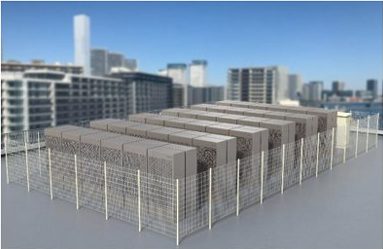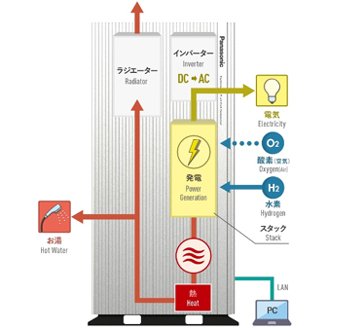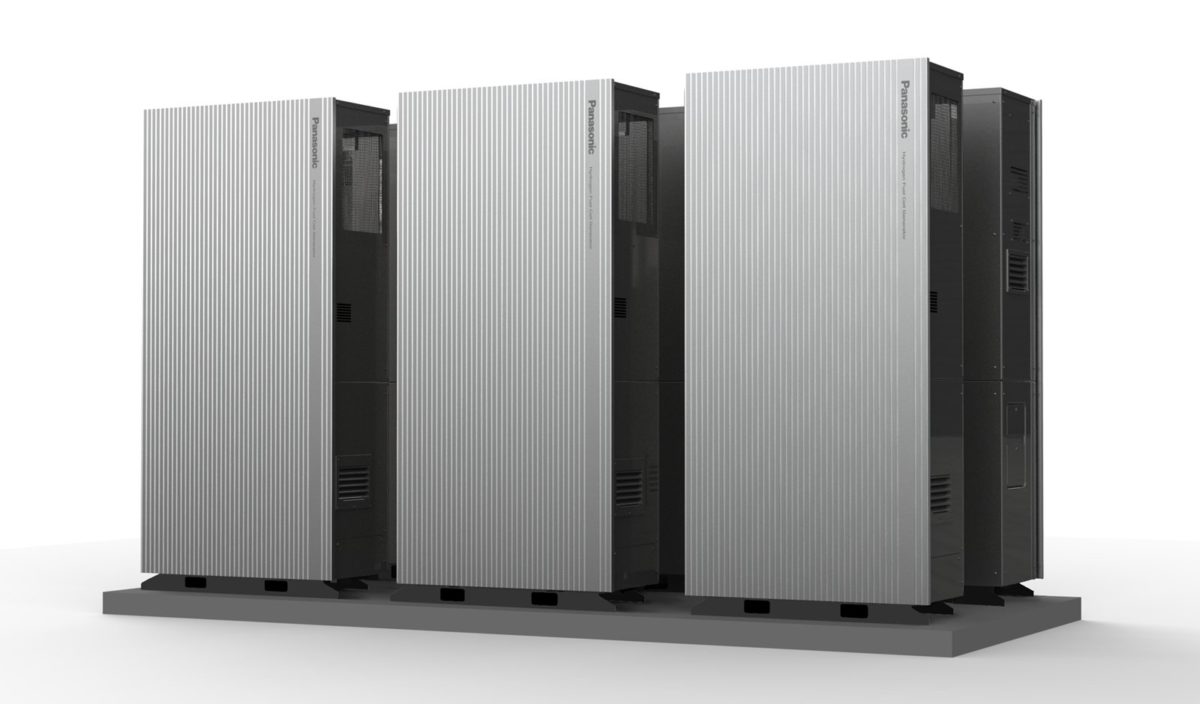From pv magazine International
Japanese electronics manufacturer Panasonic has launched a 5 kW pure hydrogen fuel cell generator for commercial applications. It has previously installed the fuel cell in several pilot projects in Japan.
Dubbed H2 Kibou, the fuel cell system works with pure hydrogen at a density of more than 99.97%, and achieves electrical efficiency of 56%. “The higher electrical efficiency leads to the reduction in hydrogen use, therefore contributing to the reduction of total running cost,” the manufacturer said in a statement.

Image: Panasonic
The system has dimensions of 834×417×1,766 mm and weighs 205 kg including the design panel. “The power output can be scaled up according to demand by connecting and controlling multiple generator units,” the company stated. “In addition, by taking advantage of its lightweight and compact housing, this generator can be flexibly adapted to various installation conditions, including the rooftop and in narrow spaces.”

Image: Panasonic
The company also explained that, using a simple PC application, it is possible to bundle together up to ten units for a total capacity of 50 kW, and that these units can be further combined to create a MW-sized installation. “By connecting a hot water storage unit (recommended product) with the product, heat generated from the fuel cell can be converted into hot water for use,” it also emphasized. “The generator has achieved total energy efficiency of 95% including the heat recovery, thereby allowing the effective use of energy without waste.”
The new product can be used with an operating temperature between -10 and 40 degrees Celsius, at altitudes not exceeding 500 m. During power outages, it is able to generate electricity and to use up to 2.5 kW of its capacity for at least 120 hours. “The product can be started in approximately one minute, which is useful for responding to peak cut control when a quick response from generators is required,” Panasonic highlighted.
The device was used by the Japanese conglomerate in a pilot hydrogen plant combined with photovoltaics and storage it built at its fuel cell factory in Kusatsu, Shiga Prefecture, in central Japan.
“Through this demonstration, Panasonic will accumulate know-how and establish a track record in energy management, including the operation of pure hydrogen fuel cell generators, and aim to commercialize the RE100 solution, which uses power generated in-house from renewable sources to supply 100% of the electricity required for business activities,” the company said at the time.
This content is protected by copyright and may not be reused. If you want to cooperate with us and would like to reuse some of our content, please contact: editors@pv-magazine.com.









By submitting this form you agree to pv magazine using your data for the purposes of publishing your comment.
Your personal data will only be disclosed or otherwise transmitted to third parties for the purposes of spam filtering or if this is necessary for technical maintenance of the website. Any other transfer to third parties will not take place unless this is justified on the basis of applicable data protection regulations or if pv magazine is legally obliged to do so.
You may revoke this consent at any time with effect for the future, in which case your personal data will be deleted immediately. Otherwise, your data will be deleted if pv magazine has processed your request or the purpose of data storage is fulfilled.
Further information on data privacy can be found in our Data Protection Policy.